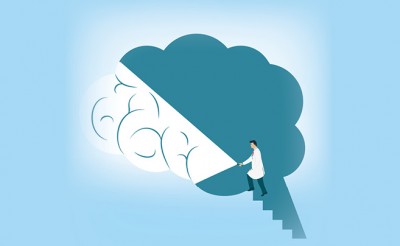The new WHS duty of care: Mental health

According to Sane Australia, nearly half of the Australian population (45%) will experience mental illness. As a result, we inevitably import our emotional, psychological, and social issues into the workplace.
In our fast-paced modern society, factors such as constant connectivity with technology, less in-person social interaction and opportunities to hone social skills, the prevalence of drug use among young people, and a growing wealth gap are all contributing to rising mental health issues.
Alongside this, our economy has shifted from agrarian and industrial to an experience economy, based on the knowledge and skillset of workers. We have undergone a transition from physical labour to emotional labour — that is, a person’s emotional capacity to deal with challenging roles and situations. However, methods for recruiting and training in the modern workplace haven’t caught up with this, leaving employers and employees grappling with the significant financial and social costs that result.
Little has been done to address mental health in the workplace. While most employers have Employee Assistance Programs (EAP) in place to assist employees in times of crisis, the focus needs to be on early stage intervention and prevention. We need to start at the ground level, educating people about mental health, its effects, how it can be managed, and how to support colleagues with mental illness. Most importantly, we need to invest in workplace training initiatives to teach people key skills, helping them to build resilience and navigate the stressors of modern day working.
Leaders need to build a mentally healthy workplace culture with emotional wellness at the forefront, creating a culture of support and inclusion. Mental illness is often misunderstood, with those affected sometimes facing workplace discrimination, exclusion, and even bullying. It’s up to managers to put preventative measures in place to stop this, and to take necessary action if it does occur. All too often, managers have received no education in this aspect of their role or toolkits to help them navigate this increasingly challenging task.
Mental health has become the new WHS duty of care. Previously, WHS was about the physical safety of employees to prevent physical injury — teaching people the right safety equipment to use, how to lift objects correctly, and so on. Safety training now needs to focus on preventing mental injury — how to build resilience, and identify mental and emotional triggers. In this way, leaders and employees alike can drive a mentally healthy workplace culture through their own behaviour.
In the past, recruitment processes were based on physical labour, with pre-employment medicals to check physical fitness levels. Today, employees being engaged for emotional labour need to have pre-employment emotional fitness checks to ensure that they are fit to engage in emotional labour. Not doing this breaches an employer’s duty of care to take reasonable steps to prevent injury.
However, this type of recruitment process poses several problems. There is a risk of discrimination if pre-employment screening focuses on uncovering mental illness, with employers less likely to select a person with this pre-disposition. A way to overcome this is to use specific assessment tools for emotional fitness. For example, our online assessment tool at FuturePeople looks at a person’s emotional coping mechanisms, rather than distinguishing between those that have a mental illness and those who don’t.
An employee with mental illness can be a high functioning and highly valuable team member — if they have taken proactive steps to manage the illness and learn coping strategies. Similarly, an employee who doesn’t have a mental illness may develop one if they don’t have the right coping strategies.
Fortunately, these strategies can be taught. Pre-screening for emotional fitness will highlight any training gaps that a person may have, so that the organisation can proactively provide training on enhancing emotional fitness. Teaching employees and leaders the critical self-management skills needed to deal with stress, navigate conflict, and build resilience will reduce the likelihood of an incident.
To build a mentally healthy workplace culture in Australia, we need to destigmatise the term ‘mental illness’ and replace it with ‘emotional wellness’. We need to ensure that our workplaces are inclusive and supportive for everyone, with preventative measures in place to protect vulnerable workers. Mental health needs to be on the agenda as the new WHS duty of care.
To speak to someone about mental health, or for 24/7 counselling, call BeyondBlue on 1300 22 4636. If you are in crisis or distress, call Lifeline on 13 11 14. If it is an emergency, call 000.